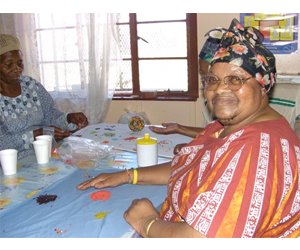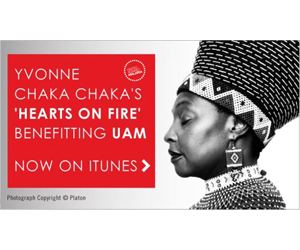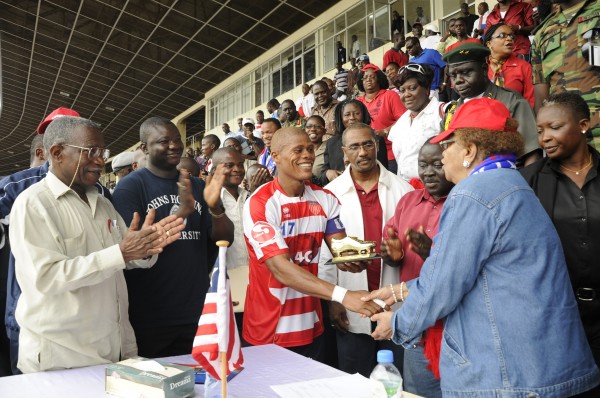In a brightly lit room in Nyanga East, part of the Philippi Township in Cape Town, South Africa, 25 senior citizens affected by HIV/AIDS are busy stringing multicolored beads on elastic threads. They are making United Against Malaria (UAM) bracelets, which not only provide an income for these pensioners, but also raise funds for life-saving mosquito nets in malaria-endemic regions of Africa. Nearly 800,000 people—mostly young children and pregnant women—die from malaria every year.
At first, the 120 seniors from Cape Town’s townships viewed the bracelets primarily as an employment project, providing the necessary income to care for family members, including grandchildren whose parents had died of AIDS. Now the UAM bracelets are taking on greater significance as these seniors learn about malaria and its effects on fellow Africans. They are proud of the role they have played in the fight against malaria, and as they work, they sing in a rich and rhythmic South African style about their contributions.
Here in the Noluthando 1 Senior Center, a former township community, two-dozen pensioners smile as they describe their mission. They speak about their renewed sense of self, about their happiness in knowing that they are helping others.
Thelma M. is 75 years old and lives with her daughter and two grandchildren. She earns an average income of $45 to $60 a week from beading which has enabled her to buy her grandchildren underwear and food, pay for transport and help others.
“I have been coming to the senior center since the 1980s. Now, the beads keep us busy, help us earn money, and it is important to know that we are helping others. I can make 200 (South African) rand ($28) for each ball of threaded beads I can make. I usually make two or three each week, although there are others who are faster or slower than I am. I would like to encourage anyone who reads this to buy bracelets, as it is helping people to be safe from malaria,” Thelma says.
Across town, in a newly refurbished second senior center known as Masiphumalele, another group of beaders is taking a lunch break from their beading. One free meal a day at the center helps keep these seniors healthy and frees up resources for other family members, while a third of the sales revenues help fund long-lasting insecticide-treated nets for families at risk of malaria. Thus, the United Against Malaria bracelet project is battling two diseases at once, and alleviating poverty.
Phumla N., Sector Coordinator for 17 senior centers for the last 20 years, explains how “the United Against Malaria bracelets are being made in four senior centers now. If sales increase, the number of seniors who could make bracelets would also increase, bringing the same benefits to more people. In November, we had to stop work because there was too much stock. The seniors were miserable. They really want to work!”
Helen Lieberman, the benefactress, explains the center’s trajectory. “We started our senior clubs 40 years ago. At the time, we had no place to meet and the Apartheid police thought we were terrorists! But when you are living in a shack, this is a nice place to come. We are organized and would love to welcome other visitors. Bring us any others who want to learn about our model here and we will take care of them. The seniors have become active members of this community. They have been to Parliament and advocated for better laws and systems to protect the elderly. We must grow this project to be able to employ others.”
Facilitated by the Relate Trust and spearheaded by Nando’s, a Johannesburg-based restaurant chain, the United Against Malaria bracelet project has raised more than $300,000 since early 2010 for the Global Fund for HIV/AIDs, Tuberculosis and Malaria. Its goal is to raise $1 million, which will fund nets for families throughout sub-Saharan Africa. The UAM partnership—of which the Johns Hopkins Bloomberg School of Public Health Center for Communication Programs is a founding partner—harnesses the global popularity of soccer to raise awareness about malaria, Africa’s oldest and deadliest disease.
Learn more about CCP’s Global Program on Malaria.





